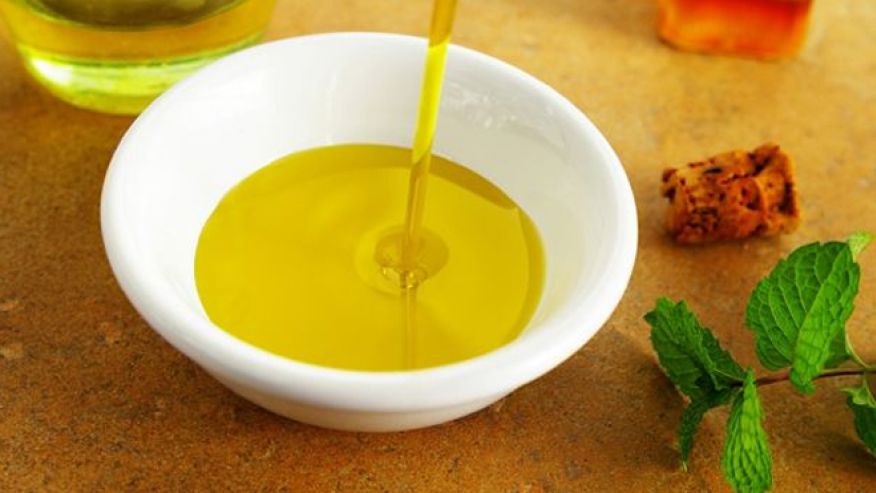Olive oil may prevent cancer, study finds

By Chris Kilham
Olive oil, a staple of the Mediterranean diet and long hailed as a cardiovascular health enhancer, is now showing promise as a cancer preventive. That’s the exciting news from a recently published study in the scientific journal Molecular & Cellular Oncology.
The study, “(-)-Oleocanthal rapidly and selectively induces cancer cell death via lysosomal membrane permeabilization (LMP)” showed that an antioxidant compound in olive oil called oleocanthal kills cancer cells rapidly – in as little as thirty minutes. News of this exciting finding has spread rapidly throughout the international medical and scientific communities.
The breakthrough study, by cancer researchers Paul Breslin of Rutgers University and David Foster and Onica LeGendre of Hunter College, was conducted on cancer cell lines in a laboratory, a standard method for examining how different substances affect cancer cells.
The trio applied the antioxidant substance oleocanthal to live cancer cells, and that induced apoptosis, or cell death. Inducing cancer cell death is a mode of action for the toxic chemotherapeutic drugs used in cancer therapy, but this study involved a healthy, safe, non-toxic antioxidant from heart-healthy olive oil. The same cell-killing effect does not occur when oleocanthal is applied to healthy cells. Thus this is known as “selective” activity.
According to LeGendre, oleocanthal causes small organelles, or vesicles, known as lysosomes, within the cells to rupture. When this rupture occurs, enzymes within the cancer cells kill those cells rapidly. Basically, the cells commit suicide.
A cell study of this type does not guarantee that olive oil will kill cancer cells when ingested by people. But this route of experimentation does often lead to comparable results in living systems. If subsequent studies using oleocanthal show anti-cancer activity in animals, then human studies would follow. In the best possible scenario, oleocanthal could prove a potent anti-cancer agent, imparting none of the negative effects of chemotherapeutic drugs, which promote fatigue, nausea, hair loss, loss of appetite and wasting. A great deal of further work is needed to show the extent to which consuming olive oil in the diet may prevent cancers.
Hippocrates exhorted people to let food be their medicine, and over the past several decades we have seen innumerable cases in which various foods, from coffee to apples, help to prevent potentially life-threatening diseases, from colon cancer to diabetes. The oleocanthal study extends that medicinal food application to cancer, arguably the most feared of all health disorders. A 2014 World Health Organization report claims that in 2012 there were 14 million new cases of cancer, and in excess of 8 million cancer deaths. Any agent that can prevent or treat this would be a boon to humanity.
Not all olive oils are equal. Extra Virgin Olive Oil contains the greatest concentration of naturally-occurring antioxidants, while “virgin” olive oil or products just labeled “olive oil” have undergone filtration and purification. These processes yield oil milder in color, aroma and flavor, appreciably lower in beneficial antioxidants. Extra virgin olive oil is the first pressing of freshly harvested olives, employing neither heat nor solvents to extract pure oil.
Found throughout parts of Africa, the Mediterranean, the Arabian peninsula and parts of Asia, olive trees display glistening silver-green leaves, and yield olives and medicinally beneficial olive leaf. Olive trees can live for as long as 3,000 years, according to botanists. The olive branch is considered a symbol of peace, and olive branches were discovered by archaeologists in King Tut’s tomb. Olives appear repeatedly in both the Bible and the Koran. Cultivated for more than 6,000 years, olive trees are now extensively grown in California, where olives are a major crop.
While olives are a popular food, olive oil is even more so, and is the choice of oils for many chefs. The oil is also a well known beauty aid and is found in luxurious lotions and skin creams. The study in Molecular & Cellular Oncology points to a new possibility, that olive oil may prove key to stopping cancer, the most feared of all killer diseases.
Chris Kilham is a medicine hunter who researches natural remedies all over the world, from the Amazon to Siberia. He teaches ethnobotany at the University of Massachusetts Amherst, where he is Explorer In Residence. Chris advises herbal, cosmetic and pharmaceutical companies and is a regular guest on radio and TV programs worldwide. His field research is largely sponsored by Naturex of Avignon, France. Read more at MedicineHunter.com.
